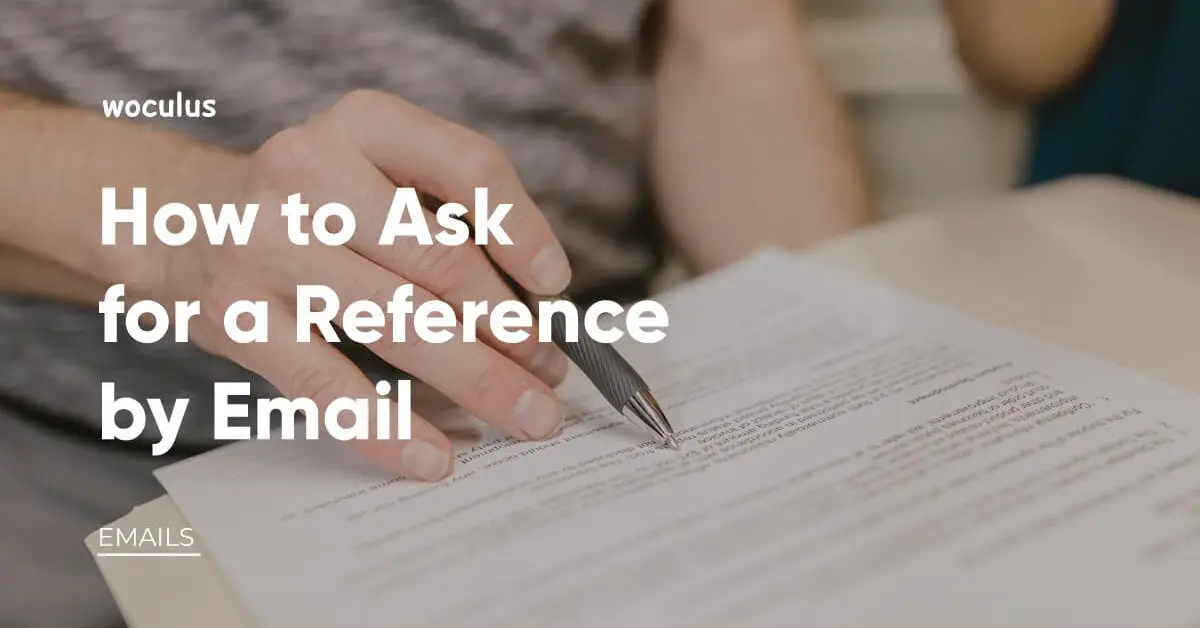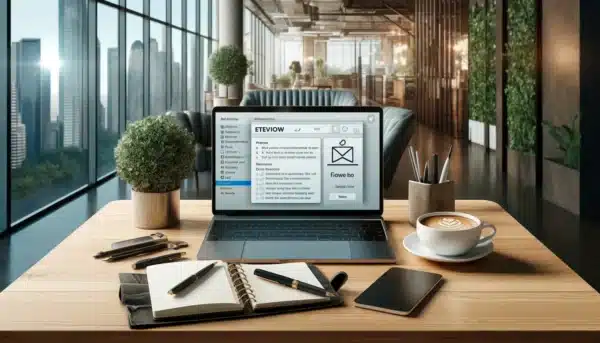During the final stages of your job offer, your potential employer will ask you for email references. References are extremely important because they give them insight into the kind of employee you would be.
Your success at your previous job and your ability to impress your colleagues is a clear pointer to how well you’ll perform in the future. Your future employer would most likely ask your references for their insight. Hence, this isn’t something you can avoid.
These references-along with professional background checks are important to fact-check your interview answers or your CV. This is why you must choose references that would speak highly of your skills, experience and general qualities. It’s also important that these references know beforehand that you’re applying for jobs and that they’re your references, so they’re not caught off-guard if your potential employer eventually reaches out.
In this article, you’ll learn how to ask someone to be your reference with samples and how to choose references.
How you ask someone to be your reference and who you ask is important. So, ensure you have strong helpful references. Further down this article, we’ll share examples of email references, how to ask for email references and some vital tips on who to write these references.
Who Should You Ask for a Reference Email
Before asking anyone to be your reference, you need to think carefully. You’d want to make sure it’s someone you trust and can speak well to your abilities as an employee or a co-worker.
Previous employers and supervisors often make the most convincing references, sometimes, it’s advisable to choose a different kind of reference as this also plays a huge role in the kind of job you’re hoping to get.
As a job seeker, it comes naturally to you for your reference options to be your former managers or supervisors. You could also consider going a different route like choosing a personal reference, a business acquaintance, customers or vendors are also great choices for references.
Your peers, colleagues and clients are also great examples of references, as they can give personal information on what it’s like working with you. If you had a doubtful relationship with your previous employer or supervisor but had a great relationship with your co-workers, it’s more logical to choose your co-workers as your references.
NB: If you’re looking for your first job or transitioning between careers, you should consider using a personal or character reference instead of an official employment reference.
While you should use a professional reference as much as you can, a character reference from a reputable member of the society or a mentor holds just as much water.
How to Ask for A Reference by Email
Your subject should be clear: When requesting a reference email, the subject line of your email should be straight to the point and be informative. For a typical subject line reference email, beginning the subject with your name and “Reference Request” is ideal.
When the recipient of your email can tell exactly what the email is about from the subject, they’re more likely to read and respond.
Express yourself properly: It’s extremely important for the sake of your application that your reference says positive things about you. Hence, when phrasing your reference email, don’t just ask, “Can you please be a reference for me?” Instead, ask them if they wouldn’t mind providing you with a decent reference.
Don’t foist your request for an email reference on anyone, always allow them to decline. You can do this by asking them, “are you comfortable with the idea of being a reference for me?” or, “I understand if this is not a good time, please let me know when is best.” If you sense any hesitation from them, it usually means they’re not interested and you should rescind your request and move on to the next person on your list.
Offer materials they might need to provide you with an email reference
If you’re seeking an email reference from someone you’ve not contacted in a while, you’d need to remind them of things you’ve worked on together and provide them with the information they would need to provide you with a good email reference. An easy way to do this is by providing your current resume and/or a recent description of your skills and experiences.
It would be easier for your reference provider to provide a compelling reference if you give them the right materials.
If you’re applying for a specific role, make sure to send them a copy of the job announcement. This helps them to focus on your most relevant experience and credentials for the position.
After providing your potential employers with a list of references, send an email to each of your references letting them know the company would be reaching out, if you know the details of what the company would be asking, provide your reference givers with an overview of this information and what you’d like them to say in the email reference.
Add your contact information: When sending an email reference request, make sure to include your email address and phone number in your message. This way, it’s easier for the person providing the email reference to respond and follow up if they have any questions.
Remember to thank them: Complete your request by thanking the reference provider for their help and consideration.
Do not forget to follow up with a thank you message after you get the email reference as well.
Sample of a Reference Email
Subject Line: Reference Request - John Doe Dear Mr. Jameson, I trust you are well, and that everything is running smoothly at XYZ. I am writing to inquire if you would be comfortable with providing a good letter of reference for me? If you could testify to my qualifications for employment and the skills I gained working at XYZ, I would be very grateful. I am currently seeking a new position as an XXX XXXXX. I look forward to continuing the work I have done in XXX XXXX while taking on a supervisory role. A positive reference from you would strengthen my chances. Kindly let me know if you have questions, or if you need further information to assist you in writing your reference. A copy of my resume has been attached to assist you further. Please reach out to me if you need more information. Thank you for your time, I am looking forward to hearing from you. Regards, John Doe
Subject Line for Reference Request
[Your Name] - Reference Request
[Your Name] is Requesting a Reference for [Job Title] Position
Could You Be a Reference for Me?
Reference Request from [Your Name]
[Job Title] Reference Request
Requesting a Reference from [Your Name]
Reference Request for [Your Name]
[Your Name] is Seeking a Reference for [Company Name]
Reference Request for [Your Name] - [Job Title] Position
How to Ask for A Reference Letter by Email Professor
Subject: Request for Reference Letter Dear Professor [Professor's Last Name], I hope this email finds you well. I am writing to request a reference letter for my [mention the purpose, e.g., graduate school application / job application]. Your guidance and mentorship have been instrumental in my academic journey, and I believe your recommendation will greatly enhance my prospects. If you are willing to provide a reference, please let me know your preferred submission method and any specific information you may need from me. I can provide you with my resume, a draft of my personal statement, and any other materials you require. The deadline for submission is [mention the deadline], and I would appreciate it if you could confirm your availability to write the letter. Your support means a lot to me, and I am grateful for the opportunity to have been your student. Thank you for your time and consideration. Sincerely, [Your Name]
How to Ask Someone to Be Your Reference Via Text
"Hi [Their Name], I hope you're doing well. I'm applying for [mention the purpose, e.g., a job/graduate program] and I was wondering if you'd be willing to be a reference for me. Your insights and support mean a lot, and I believe your recommendation would be valuable. If you're comfortable with it, please let me know. I'll provide any necessary details and materials, and I can share the deadline with you. Your help is greatly appreciated. Thanks in advance! Best regards, [Your Name]"
How to Ask for A Reference by Email as An Employer
Subject: Reference Request for [Candidate's Name] Dear [Reference's Name], I hope this message finds you well. I am reaching out to request your support in providing a reference for [Candidate's Name], who has recently applied for a position at our company. Your professional opinion and insights into their qualifications would be immensely valuable. If you are available and willing to be a reference, kindly confirm your consent and availability for a brief phone call or email exchange regarding their strengths and experience. Please let me know your preferred mode of communication and a convenient time for us to discuss this further. Your assistance in this matter is greatly appreciated. Thank you for your consideration. Sincerely, [Your Name] [Your Title] [Company Name]
Check out more Templates and Samples to Ask for a Reference by Email






